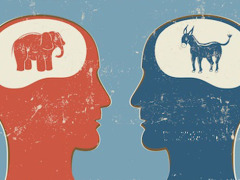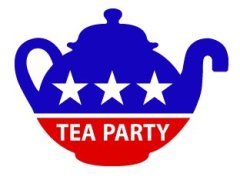Or why capitalism and freedom are not necessarily the same thing, despite what Milton Friedman says.
There are multiple academic and popular understandings of the relationship of Capitalism and Freedom, though in popular political discourse these two concepts often get conflated as one and the same thing. Indeed, some important thinkers intentionally conflate the two concepts. For example, Milton Friedman, the well-known Nobel Prize winning economist and economic advisor to President Reagan and Margaret Thatcher, essentially argued that economic freedom was part of freedom, in his book Capitalism and Freedom, written in 1962.
Friedman, along with earlier writers, Friedrich Hayek, Ayn Rand, Ludwig von Mises, to mention the names most commonly associated with such views, essentially defined the philosophical and moral positions that came to comprise both libertarian and much mainstream Republican and Tea Party thinking.
As Friedman put it in Capitalism and Freedom (15), “Underlying most arguments against the free market is a lack of belief in freedom itself,” and
Economic arrangements play a dual role in the promotion of a free society. On the one hand, freedom in economic arrangements is itself a component of freedom broadly understood, so economic freedom is an end in itself. In the second place, economic freedom is also an indispensable means towards the achievement of political freedom (Capitalism and Freedom, 8)
This sounds good and self-evident on paper. After all, if we are a country that endorses freedom, then we should be endorsing economic freedom right? Shouldn’t general freedom by definition include economic freedom? Who can argue with that?
However, if one scrutinizes Friedman’s claim more deeply, one can see that the argument hinges on both a very specific idea of freedom itself as well as a very specific idea of what economic freedom means.
Defining Economic Freedom
Let’s unpack Friedman’s ideas a bit more. Essentially Friedman is arguing that freedom itself implies and includes economic freedom. What Friedman means by economic freedom becomes clear as the argument unfolds in the book. Economic freedom means not only the right of individuals to act freely in the market, but for markets themselves to be free of government regulation. In other words, free markets, Friedman argues, are part and parcel of what liberty means in a free society. To regulate markets, by contrast, is to take away freedom.
As the book unfolds, Friedman cites various examples where government is improperly intervening in markets. He discusses Federal monetary policy and the gold standard, international trade regulations, public education, among other topics. He argues most provocatively, for example, that a shop owner should be free to choose whom to sell to or whom to hire, including the right to decide if he or she wants to sell to or hire blacks or Jews (and by implication women or gays). It is not that Friedman is racist or anti-Semitic (Friedman himself was born to immigrant Jewish parents). It is rather that Friedman believed the market would punish those who are racist and that the market could come up with the best solutions, rather than government mandating tolerance. The Civil Rights Act was still two years away when Friedman first published Capitalism and Freedom. It is important to note, by the way, that Friedman focuses more on the freedom of the seller or business owner, and less on the buyer or person wanting to be hired, whose freedom is limited by the decisions made by business owners.
Following a similar line of reasoning, Friedman argues that the embrace of economic freedom means that government should not overburden markets with professional certifications, licensure or other sorts of regulations. Friedman even doubts whether medical certifications make sense as a way to protect the public and argues that we can avoid fraud and harm in other ways. At the heart of Friedman’s argument throughout, of course, is the picture of omniscient market and invisible hand that reaches back to Adam Smith, often considered the father of economics.
Not an economic style argument
It is important to realize that Friedman’s argument about economic freedom is not principally an economic argument, though Friedman was an economist. This is a moral argument. The moral argument is about the definition of liberty and the claim that liberty must include economic freedom, which to Friedman really means free markets and minimal government regulation. This strand of Friedman’s argument here can be contrasted with the argument of other free market advocates, such as Friedrich Hayek, and legal philosopher, Richard Epstein, who advocate for freedom of markets based on general benefits, not based on the definition of liberty and meaning of liberty itself.
The conclusions of all these thinkers are very much the same: government should stay out of markets and markets should not be regulated. But their way of getting there is different. In Capitalism and Freedom, Friedman gets there very much through a moral argument about what liberty means in a free society. Hayek and Epstein, among others, get there by arguing based on consequences: in their view, a free market lift all boats and has the best utility all around for the most people. This is what ethicists call a “consequentialist” or “utilitarian” style argument. It differs from the argument that liberty by definition implies free markets.
When economists are arguing as moral philosophers
Perhaps it is not that important to differentiate these different types of arguments for free markets from each other since they all end up in the same conclusion. But we should be clear when economists are arguing as economists and when they are arguing as moral philosophers. The sliding from economic arguments into moral philosophical arguments is often imperceptible and one of the reasons I have argued that economists have become “the priests of modernity” from whom we need a new reformation.* Economists should not be privileged when making moral arguments or drawing moral conclusions from economic theory. They are not better at morality than other types of people. Even Adam Smith the father of economics viewed moral philosophy as a separate science and wrote a book about “moral sentiments.”
It is beyond the scope of this blog to take on Friedman’s argument in detail. I have done that elsewhere in an essay and a book that takes on the types of arguments made in favor of free markets. But suffice it to say here that Friedman’s sleight of hand, in his claim that freedom necessarily means free markets, is very much contestable.
Freedom includes the right to regulate markets
In fact, the question of what freedom means is itself a question that a liberal society has a right and duty to debate. After all, what does liberty mean if it doesn’t include the question about how markets should be run? While it is clear certain forms of government do not fall under the rubric of a free society (e.g., socialist, communist, fascist, or totalitarian regimes), it is very much contestable how much freedom a free society needs to give a market.
Free societies are focused on protecting the rights of individuals, and have no obligation to the rights of markets. Markets don’t have rights, only people do. Moreover, markets have impacts on lives and property (and liberty, too, when slavery is allowed to exist). While it is clear that a free society embraces notions of protecting property and thus must have some sense that a person can decide what to do with his or her property, it is by no means clear and self-evident that freedom means minimal government regulation of markets.
On the contrary, it is possible to argue the exact opposite: that freedom includes the right of society to decide how much freedom to give its markets and how to balance the forces of the market with the protection of its citizens. Indeed, in a world where market forces are larger than governments, the need to protect individuals from market forces themselves certainly can be thought to be a role of government in a free society. After all, government’s duty is to protect the life, liberty, property, and even arguably the health of an individual. On this view, a free society has the right and duty to decide how to balance the freedom of markets against the health and general well-being of individuals. Just as a free society must regulate property in order to protect citizen’s rights, so too must governments intervene in markets in order to protect citizen’s lives, liberties and properties. Milton Friedman claimed that economic freedom is part of liberty. But I say liberty includes the right to regulate markets.
***
*For a sustained argument about the meaning of liberty and its relationship to the question of markets, see my Beyond Liberty Alone: A Progressive Vision of Freedom and Capitalism in America, particularly chapter 9. For an essay contesting Friedman’s views in more detail, see “What Color Tie Do You Vote For?: Or ‘Is Economic Freedom Part of Liberty?’ A Critique of Milton Friedman’s Capitalism and Freedom.”




